
Temos o prazer de convidá-los para a próxima Conferência de Pesquisa e Inovação em Transição Energética 2024 (ETRI), que será realizada de 5 a 7 de novembro de 2024, em São Paulo, Brasil, e é organizada pelo Centro de Pesquisa para Inovação em Gases de Efeito Estufa (RCGI) na Universidade de São Paulo (USP).
O ETRI está na sua sétima edição e oferece uma plataforma crucial para discutir soluções inovadoras para contribuir para o caminho da Transição Energética Sustentável. Neste sentido, o papel das novas tecnologias é fundamental para alcançar estes objetivos. Por esta razão, o tema do ETRI 2024 é “Ação Climática através de Tecnologias Avançadas para um Futuro Sustentável”.
5-7 de Novembro de 2024
no Auditório CDI USP e no DigitalLab no InovaUSP.
Auditório CDI USP
Av. Prof. Lúcio Martins Rodrigues, 310 - Butantã, São Paulo.

Chamada para Envios Tardios de Resumos
Temos o prazer de anunciar a oportunidade de Envio Tardio de Resumos para a Conferência de Pesquisa e Inovação em Transição Energética 2024 (ETRI). Esta chamada é específica para resumos submetidos após o prazo inicial de 2 de setembro e está aberta principalmente a pesquisadores externos que não estejam vinculados ao Centro de Pesquisas em Gases de Efeito Estufa (RCGI).
Esta é uma oportunidade valiosa para instituições de investigação, universidades, profissionais da indústria, agências governamentais e organizações não governamentais apresentarem a sua investigação de ponta no ETRI 2024.
Datas importantes:
Período de envio tardio de resumos: 3 a 7 de outubro
Prazo final para envio tardio de resumos: 7 de outubro
Notificação de aceitação: a partir de 7 de outubro
Período de inscrição para Resumos Aceitos: 7 a 25 de outubro
Período de inscrição para demais participantes: 7 de outubro – 5 de novembro
Link de inscrição: https://managerweb.fusp.org.br/#/acessos/48A7FF/eventos
Use este modelo para sua apresentação: Modelo de apresentação de resumo ETRI 2024 – ppt.
Envie a sua apresentação a
![]()
Chair do ETRI 2024 – Karen Mascarenhas
Diretor Científico do RCGI, Universidade de São Paulo – Julio Meneghini
Shell Brasil, Diretor de Tecnologia e P&D Brasil – Olivier Wambersie
Secretaria do Meio Ambiente do Estado de São Paulo (SEMIL), Subsecretária de Energia e Mineração – Marisa Barros
Escola Politécnica da USP, Diretor – Reinaldo Giudici
FAPESP, Presidente – Marco Antônio Zago
ANP – Agência Nacional do Petróleo, Gás Natural e Biocombustíveis, Assessora de Meio Ambiente da Superintendência de Tecnologia e Meio Ambiente (STM/ANP) – Daniela Correa
Reitor da USP – Carlos Carlotti Jr.
Shell Brasil, Gerente Geral de Tecnologia Brasil – Olivier Wambersie
Shell Brasil, Vice-Diretora no RCGI e Líder de Projetos de Tecnologia – Camila Farias
Breve
Chair do Comitê Científico do ETRI 2024 – Suani Coelho
DATAGRO, Presidente – Plinio Nastari
Shell Brasil, Gerente de Tecnologia de Baixo Carbono – Alexandre Breda
CCS Brasil, Cofundadora e Diretora – Isabela Morbach
Presidente: USP, Professora do Instituto de Energia e Ambiente – Virginia Parente
3M, Presidente – Paulo Gandolfi
Natura, Gerente de Sustentabilidade e Mudanças Climáticas – João Teixeira
Boticário, Pesquisadora Sênior de Embalagens – Franciele Saorin
Shell Brasil, Gerente de Programas de Transição Energética – Cleusa Araújo
Compass, Gerente Executiva de Desenvolvimento Sustentável e Comunicação Externa – Karla Censi
Reservas Votorantim, Diretor Executivo – David Canassa
05/11 – NBS1 (TV1) – Chair: Tiago Osório Ferreira
05/11 – CCUS2 (TV2) – Chair: Anthony Kucernak e Liane Rossi
05/11 – BECCUS3 (TV3) – Chair: Thiago Lopes
05/11 – GHG4 (TV4) – Chair: Luis Sá
05/11 – ELECT5 (TV5) – Chair: Mauricio Salles
Chair: USP – RCGI, Diretor do InnovaPower Hub – Mauricio Salles
ANEEL – Agência Nacional de Energia Elétrica, Especialista em Regulação – Daniel Vieira (virtual)
Casa dos Ventos, Head de Novos Negócios – José Augusto Campos
TotalEnergies, Líder de Sistemas de Energia – João Gonzaga
Escola Politécnica da USP, Professor e Consultor – Dorel Soares Ramos
FIESP, Gerente do Departamento de Infraestrutura – Gustavo Gonçalves Borges
BNDES – Banco Nacional de Desenvolvimento Econômico e Social, Economista – Marcelo Miterhof
MME – Ministério de Minas e Energia, Diretora do Departamento de Transição Energética – Karina Araújo Sousa
Um espaço para conectar academia e indústria, promovendo colaborações, oportunidades de carreira e inovação na transição energética.
Chair: USP – RCGI, Diretor do Programa de Descarbonização do RCGI – Bruno Carmo
Toyota, Diretor de Comunicação Corporativa e ESG – Roberto Braun
Hyundai Motor Brasil, Head de Novos Negócios de Hidrogênio para América Central e do Sul – Anderson Suzuki
Diretora do Programa de CCU do RCGI – Liane Rossi
Diretor Científico do RCGI, Universidade de São Paulo – Julio Meneghini
06/11 – CCUS6 (TV1) – Chair: Liane Rossi
06/11 – DECARB7 (TV2) – Chair: Bruno Carmo
06/11 – GHG8 (TV3) – Chair: Fernando Sacomano
06/11 – ELECT9 (TV4) – Chair: Renato Monaro
06/11 – ECONOMICS10 (TV5) – Chair: Alberto Fossa
Shell Brasil, Energy Transition Program Manager – Cleusa Araújo
Shell Brasil, Vice Director at RCGI & Technology Project Lead – Camila Farias
Chair: Diretor Científico do RCGI, Universidade de São Paulo – Julio Meneghini
USP, RCGI, Professor titular do Instituto de Energia e Ambiente (IEE) da Universidade de São Paulo (USP) – Colombo Tassinari
USP – RCGI, Pesquisador do RCGI – Pedro Vassalo Maia
CCS Brasil, Diretora & USP – RCGI, pesquisadora – Nathalia Weber
06/11 – NBS11 (TV1) – Chair: Tiago Osório Ferreira
06/11 – CCUS12 (TV2) – Chair: Colombo Tassinari
06/11 – ELECT13 (TV3) – Chair: Mauricio Salles
06/11 – DECARB14 (TV4) – Chair: Suani Coelho
06/11 – ECONOMICS15 (TV5) Chair: Karen Mascarenhas
Chair: Diretor de Transferência de Tecnologia e Inovação – Renato Picelli
USP – RCGI, Gerente de Transferência de Tecnologia e Inovação – Ruy Rede
Braskem, CVC e OXYGEN, CEO – Artur Faria
Natura, Head de Investimentos e KPTL, Clima – Danilo Zelinski
FAPESP, Gerente da Área de Inovação, e FEA-USP, Professora de Finanças – Liliam Carrete
06/11 – CCUS16 (TV1) – Chairs: Pedro Vidinha
06/11 – GHG17 (TV2) – Chairs: Emilio Silva
06/11 – Advocacy18 (TV3) – Chairs: Karen Mascarenhas
06/11 – ELECT19 (TV4) – Chairs: Renato Monaro
06/11 – ESG20 (TV5) – Chairs: Suani Coelho
Chair: USP – RCGI, Diretor do Programa de Bioenergia com Captura e Armazenamento de Carbono (BECCS) – Marcos Buckeridge
Raízen, Consultor – Antonio Stuchi
USP- RCGI, Pesquisador – Soluções Baseadas na Natureza (NBS) – João Luis Carvalho
FS Alimentando a Sustentabilidade, Gerente de Sustentabilidade – Claudia Shirozaki
USP – RCGI, BECCS, Professora do Instituto de Energia e Ambiente, Coordenadora do Grupo de Pesquisa em Bioenergia da Universidade de São Paulo – Suani Coelho
EPE, Analista de Biocombustíveis – Danilo Perecin
BP Bioenergia, Gerente de Projetos – Tiago Effting
07/11 – NBS21 (TV1) – Chair: Mauricio Cherubin
07/11 – GHG22 (TV2) – Chair: Luis Sá
07/11 – Advocacy23 (TV3) – Chair: Alberto Fossa
07/11 – ELECT24 (TV4) – Chair: Mauricio Salles
07/11 – ESG25 (TV5) – Chair: Karen Mascarenhas
07/11 – NBS26 (TV1) – Chair: Carlos Cerri
07/11 – BECCUS27 (TV2) – Chair: André Dourado
07/11 – GHG28 (TV3) – Chair: Fernando Sacomano
07/11 – ELECT29 (TV4) – Chair: Renato Monaro
07/11 – DECARB30 (TV5) – Chair: Thiago Lopes
Convidamos todos os participantes a visitar o DigitalLab, no edifício Inova USP (em frente ao CDI)
Chair: USP – RCGI, Diretor do Programa de Advocacy – Edmilson Moutinho dos Santos
CCS Brasil, Diretora & Pesquisadora do RCGI – Nathalia Weber
Instituto Combustível Legal, CEO – Emerson Kapaz
USP – OTIC Offshore Technology Innovation Centre, Vice-Diretor – Gustavo Assi
Agroícone, Pesquisadora Sênior – Luciane Chiodi
USP – ESALQ, Professor Titular – Carlos Alberto Labate
Chair: Co-presidente do Comitê Científico do ETRI 2024 – Alberto Fossa
Líderes Temáticos:
CCUS – Liane Rossi
CCUS – Colombo Tassinari
NBS – Carlos Cerri
BECCUS – Marcos Buckeridge
GHG – Emilio Nelli Silva
Advocacy – Edmilson Moutinho dos Santos
ESG – Suani T. Coelho
ECONOMIA – Virginia Parente
ELETRIFICAÇÃO – Mauricio Salles
DESCARBONIZAÇÃO – Bruno Carmo
Premiaremos os melhores resumos recebidos em cada uma das Trilhas Temáticas nas Sessões Orais Curtas

Este eixo temático envolve a restauração da vegetação nativa, a expansão de sistemas agrícolas integrados e a restauração de áreas de pastagens. Além disso, o eixo também considera técnicas de restauração da vegetação, restabelecendo espécies nativas. Desta forma, o solo acumulará uma elevada biodiversidade de substratos vegetais que deverão estimular a sua biomassa microbiana, resultando numa potencial fixação de carbono no solo.
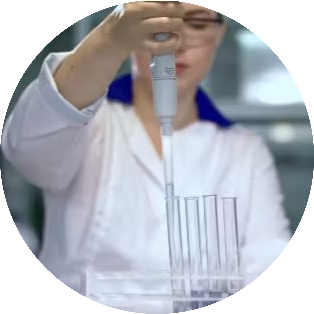
Este eixo temático concentra-se na criação de valor a partir das emissões CO2 emissões através do desenho de processos integrados para CO2 captura e conversão. Nesta conceito, CO2é considerado um valioso alicerce químico para combustíveis e materiais. Este eixo também inclui tecnologias utilizadas no armazenamento de CO2 em estruturas geológicas e outros tipos.

Este tema envolve tecnologias ou um conjunto de tecnologias que associam a energia da biomassa à utilização e armazenamento de carbono, processo sempre realizado em larga escala. Com isso é possível sequestrar carbono da atmosfera. Estão incluídos trabalhos que apresentam tecnologias e suas contribuições para a construção de uma percepção pública positiva do BECCUS influenciando o modelo de políticas públicas de sustentabilidade para os sistemas brasileiros de energia.

O Programa Gases de Efeito Estufa (GEE) dedica-se ao estudo de tecnologias relacionadas à medição e quantificação de emissões de GHG; Mitigação de emissões GHG, tais como, máquinas e dispositivos pneumáticos em geral, combustão em looping químico e combustão de oxicombustíveis; Sistemas de adsorção para captura de CO2 de gases de combustão; Solventes eutéticos profundos para captura de CO2 de gases de combustão; e Membranas para captura de CO2 de gases de combustão.

Esta tema está relacionado ao desenvolvimento de documentos para as áreas de mudanças climáticas, sustentabilidade e descarbonização, com padrões de requisitos, especificações e guias, que podem ser utilizados para garantir consistentemente que materiais, produtos, processos e serviços sejam adequados aos seus propósitos. Esta via também apóia políticas que proporcionem a transição energética e o engajamento da sociedade, alcançados pela compreensão da percepção social e aceitação de todas as partes interessadas, bem como do público leigo, estabelecendo um diálogo aberto com a sociedade. Trabalhos e estudos nessas áreas são fundamentais para apoiar a transição e implementação tecnológica.

Esta tema busca apresentar soluções inovadoras e sustentáveis focadas na descarbonização dos sistemas elétricos de energia. Inclui, mas não se limita, aspectos como materiais ecoeficientes, maior disponibilidade e eficiência da produção de electricidade, optimização dos recursos energéticos distribuídos e integração com a agricultura, digitalização da rede elétrica.
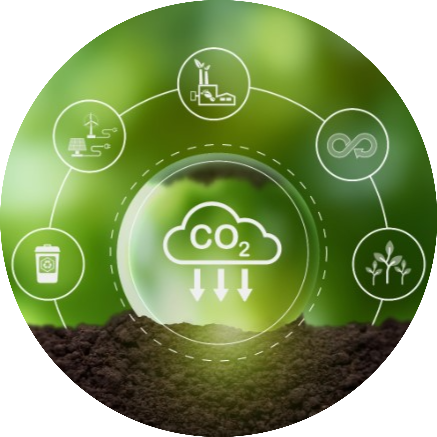
A redução da quantidade de carbono, principalmente dióxido de carbono (CO2), liberada na atmosfera é conhecida como descarbonização. O objetivo é fazer a transição para uma economia global com baixas emissões e eficiência energética, para tornar-se “carbono neutro”. Pesquisadores discutem o que descobriram para combater esta preocupação principal.

Sustentabilidade, responsabilidade social e boa governação são temas que assumem cada vez mais importância no setor empresarial.A estrutura Ambiental, Social e de Governança (ESG) emergiu como uma ferramenta crucial para avaliar e lidar com estas preocupações. Pesquisadores deste tema apresentarão suas descobertas.
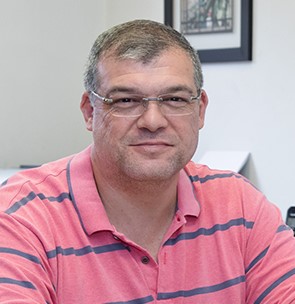
Natural Based Solutions (NBS)
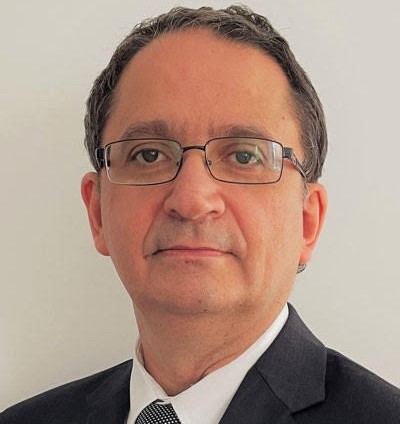
Greenhouse Gas Technologies (GHG)
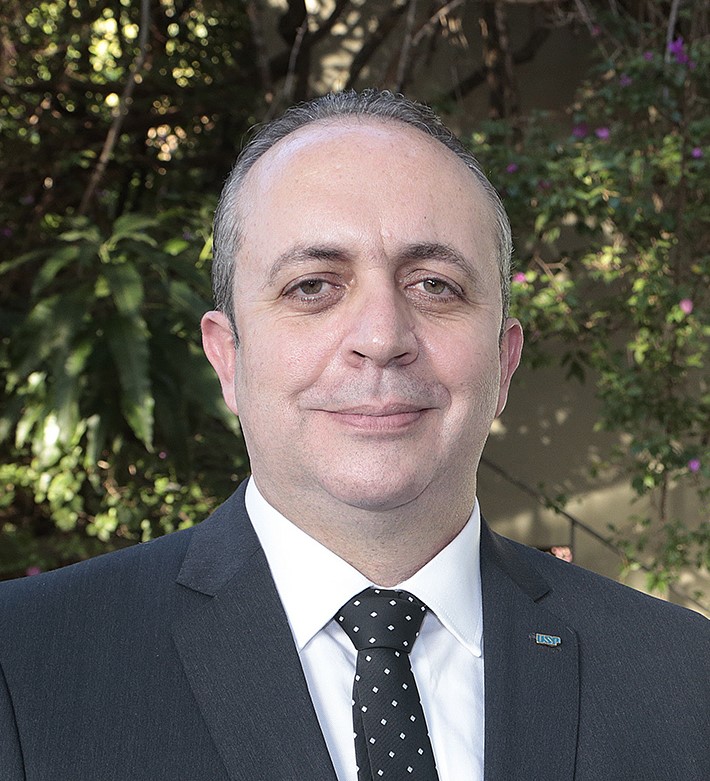
Bioenergy with Carbon Capture Utilization and Storage (BECCUS)
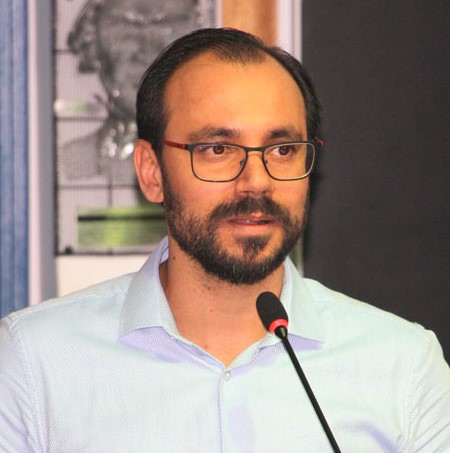
Carbon Capture Utilization and Storage (CCUS)
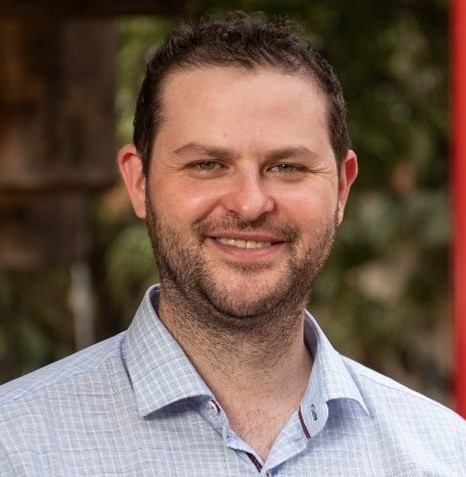
Nature Based Solutions (NBS)
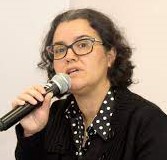
Carbon Capture Utilization and Storage (CCUS)

Carbon Credits & Economics
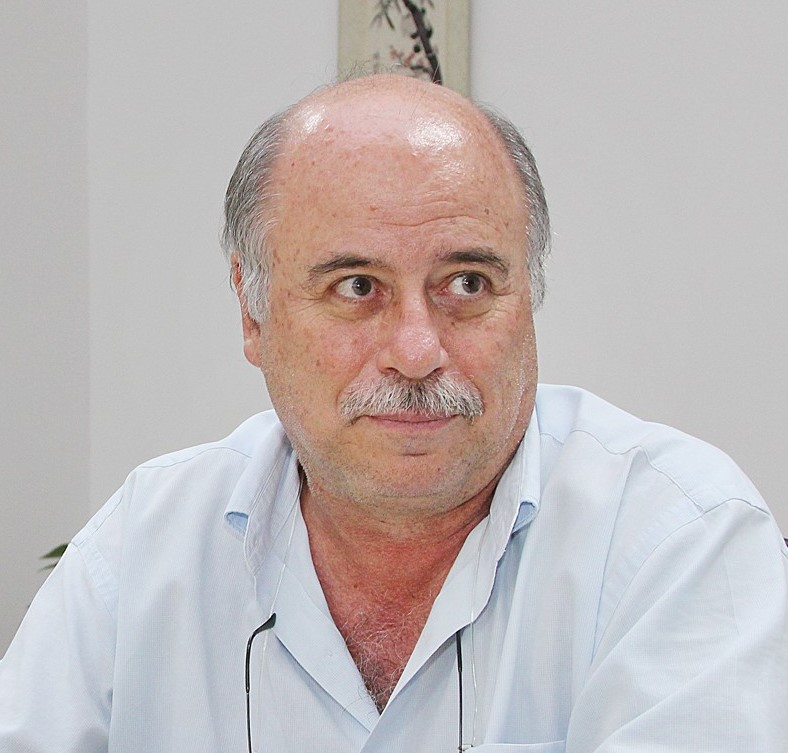
Full professor at the Institute of Energy and Environment (IEE) at University of São Paulo (USP)
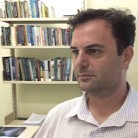
Environmental & Social & Gender
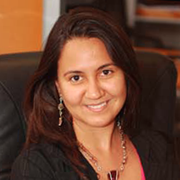
Standardization, Regulation, Social Perception & Acceptance
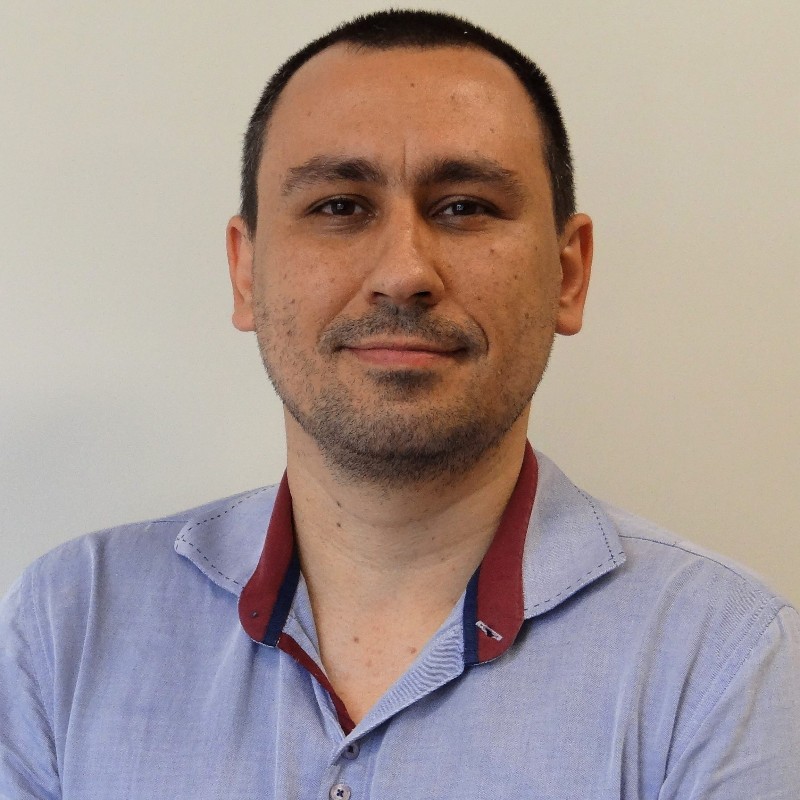
Power & Storage
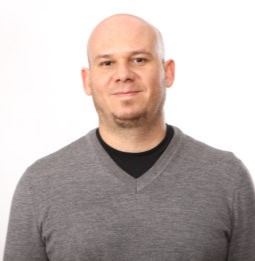
Power & Storage
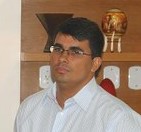
Natural Based Solutions (NBS)
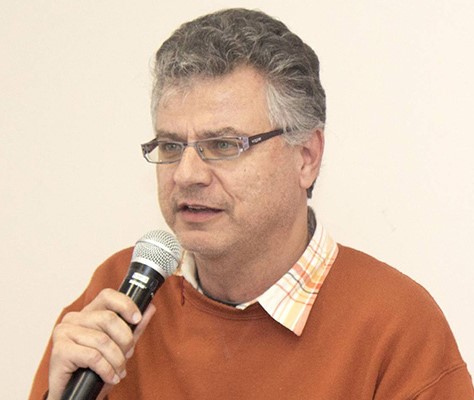
Standardization, Regulation, Social Perception & Acceptance

Greenhouse Gas Technologies (GHG)
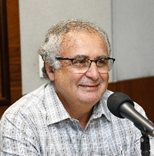
Power & Storage
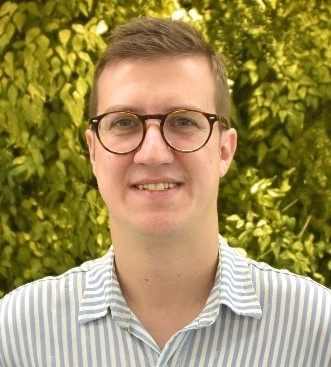
Greenhouse Gas Technologies (GHG)
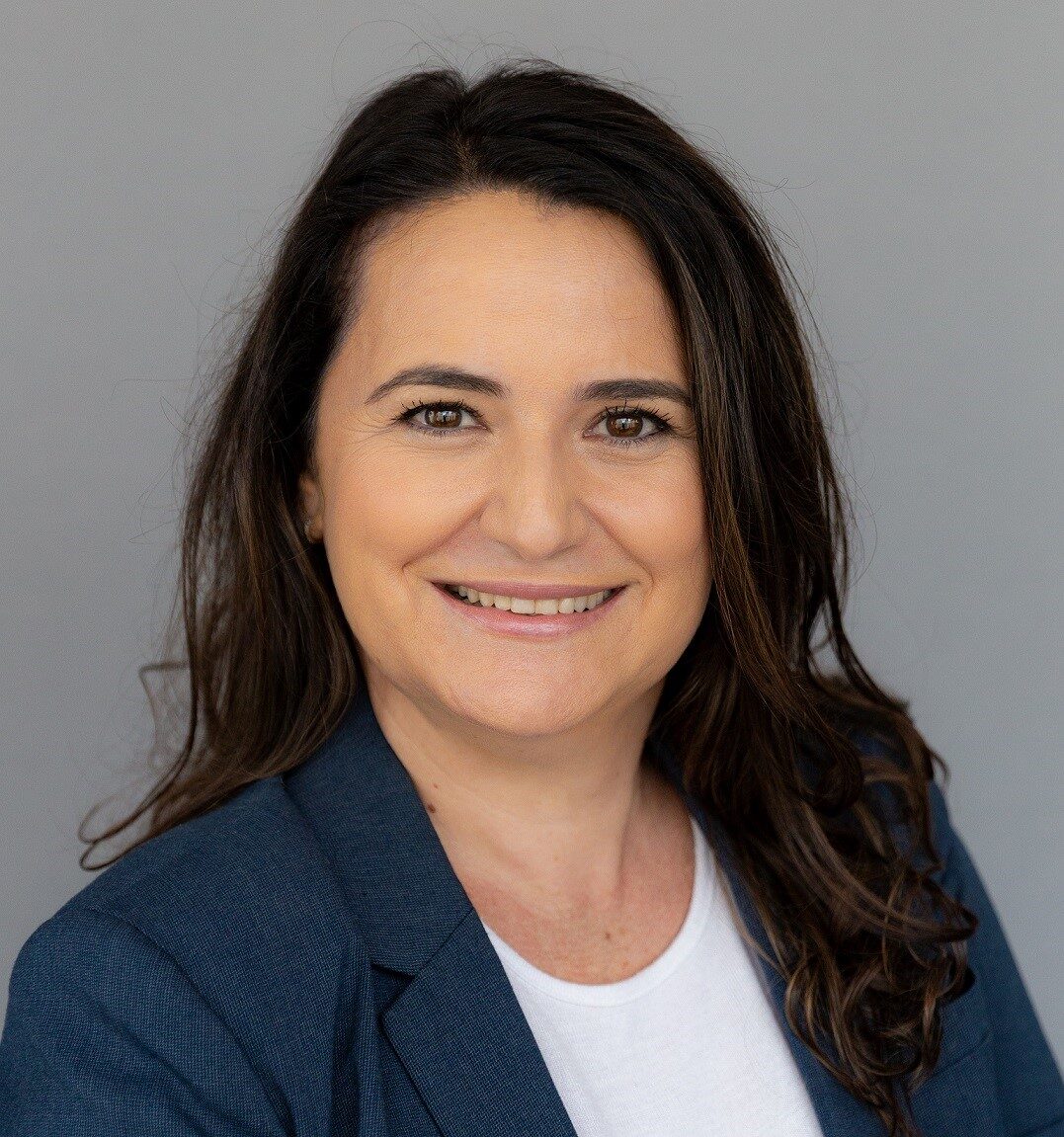
Carbon Capture Utilization and Storage (CCUS)
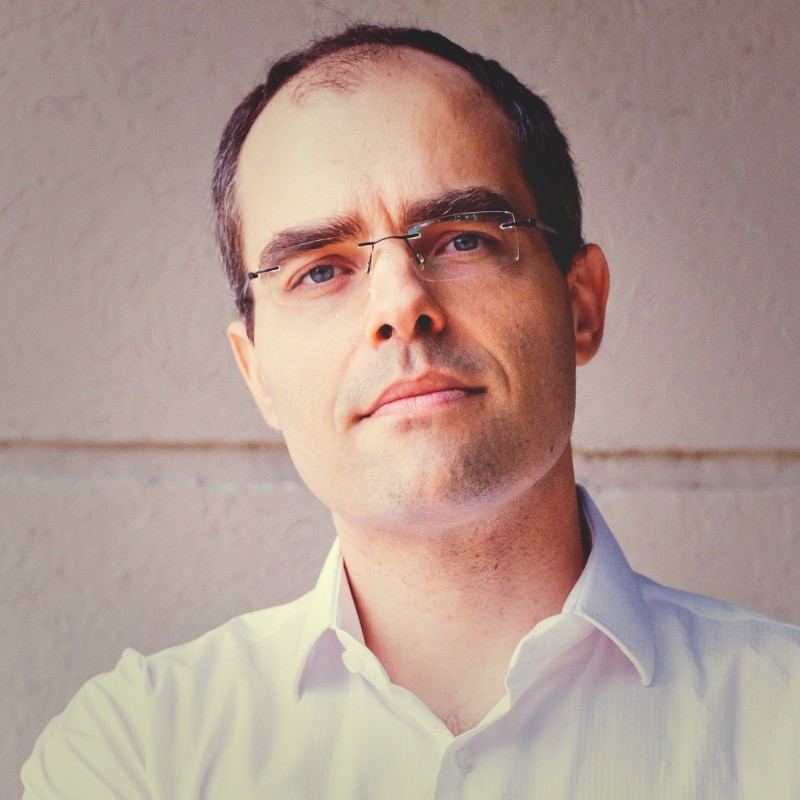
Bioenergy with Carbon Capture Utilization and Storage (BECCUS)
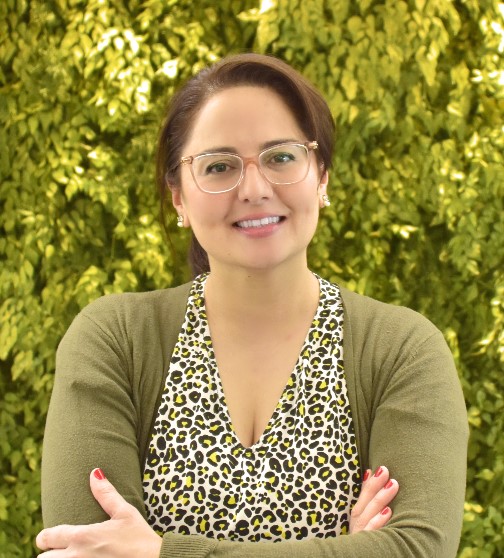
Gerente de Comunicação e Difusão do Conhecimento - RCGI-USP.

Doutorando na Escola Politécnica da Universidade de São Paulo (POLI-USP) e pesquisador no Research Centre for Greenhouse Gas Innovation (RCGI-USP).

Doutor em Engenharia Mecânica (Energia e Fluidos), Mestre, e MBA pela Universidade de São Paulo. Engenheiro Mecânico pela Universidade Nacional de Colombia - Medellín. Atualmente, é pesquisador do Grupo de Pesquisa em Bioenergia (GBIO) e do Research Centre for Greenhouse Gas Innovation (RCGI).

Pós-doutorando na Escola Politécnica da Universidade de São Paulo e pesquisador associado ao Research Centre for Greenhouse Gas Innovation (RCGI-USP) no programa do Núcleo de Inovação em Sistemas de Energia (InnovaPower).

Since June 2023, holds a postdoctoral position at the Department of Mechanical Engineering at the Polytechnic School of the University of São Paulo, where conducts research at the Research Centre for Greenhouse Gas Innovation (RCGI).

Graduando em Engenharia de Produção pela Escola Politécnica da Universidade de São Paulo (Poli-USP) e pesquisador no Research Centre for Greenhouse Gas Innovation (RCGI).

Analista de Eventos - RCGI-USP.

Doutorando no Laboratório de Fenômenos de Superfície da Escola Politécnica da Universidade de São Paulo (USP) e participa do "PROJECT 65" do Research Centre for Greenhouse Gas Innovation (RCGI).

Estudante de Matemática na USP e pesquisadora de Iniciação Científica.

PhD, é atualmente professora assistente na Universidade de São Paulo, no Departamento de Mecatrônica e Sistemas Mecânicos.

Engenheira florestal e mestre em Ciência Florestal (UFV), é doutoranda no Instituto de Energia e Ambiente da Universidade de São Paulo (IEE-USP) e pesquisadora associada do Grupo de Pesquisa em Bioenergia (GBio).

Engenheira Naval formada pela USP e com experiência em manutenção naval e projetos navais, além de ter operado simulações de manobras em hidrovias pelo IPT. Fez uma transição para a carreira acadêmica e se envolve em pesquisas no NDF, TPN, e RouteLab, ambos laboratórios do PNV, Departamento de Engenharia Naval da POLI USP.
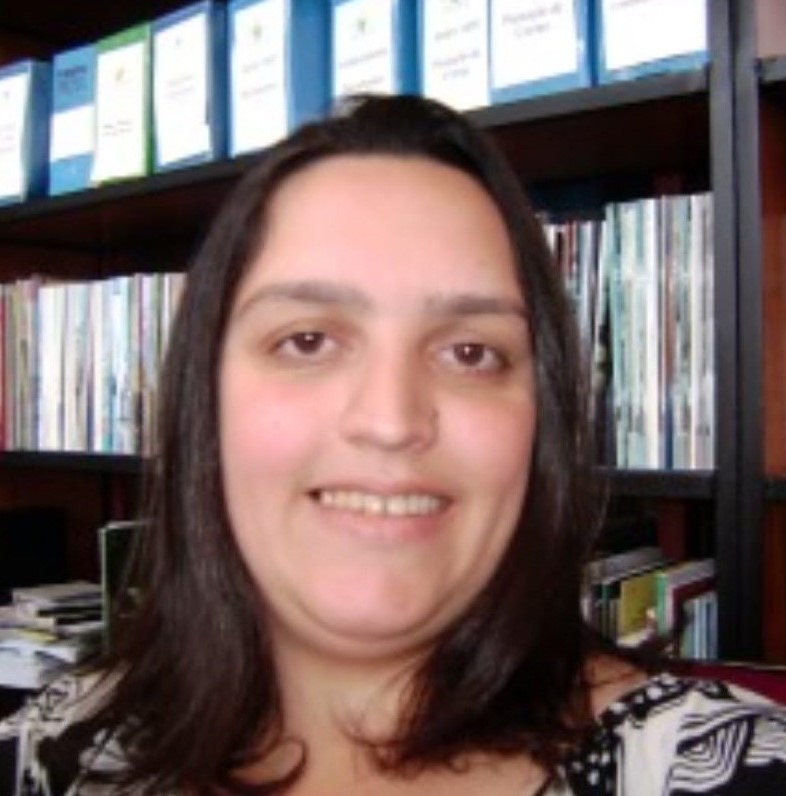
Pesquisadora pós doutoranda no IEE/USP, no âmbito do RCGI-USP.

Pós-doutoranda no Instituto de Energia e Ambiente da Universidade de São Paulo (IEE-USP) e pesquisadora associada ao Grupo de Pesquisa em Bioenergia (GBio) e ao Centro de Pesquisa para Inovação em Gases de Efeito Estufa (RCGI-USP).

Mestranda no Instituto de Energia e Ambiente da Universidade de São Paulo (IEE-USP) e bolsista de pesquisa no Research Centre for Greenhouse Gas Innovation (RCGI-USP).

Estudante de Engenharia Química na USP, Iniciação Científica sob supervisão da Professora Daniela Damasceno (Departamento de Engenharia Mecatrônica - RCGI - USP).

Doutoranda na Escola Politécnica da Universidade de São Paulo (EPUSP) e pesquisadora associada ao Research Centre for Greenhouse Gas Innovation (RCGI-USP).

Pós-doutoranda no Instituto de Energia e Ambiente da Universidade de São Paulo (IEE-USP) e pesquisadora associada ao Research Centre for Greenhouse Gas Innovation (RCGI-USP).
Director of Human Resources and Institutional Communication at RCGI
Deputy Coordinator of the project “Social Perception and Science Diplomacy for the Technology Transition towards a Low-Carbon Society” at RCGI
Since 2016 serves as Director of Human Resources and Leadership Management for the RCGI – Research Centre for Gas Innovation located at the Polytechnic School of the University of São Paulo (USP), funded by FAPESP (São Paulo State Funding Agency) and Shell Brasil. In 2021 she became the deputy coordinator of the project “Social Perception and Science Diplomacy in the Technology Transition towards a Low-Carbon Society”. And in 2023, after concluding her PhD, she assumed the Directory of Institutional Communication and Human Resources. She has a degree in Psychology from the University of São Paulo (USP), a post-graduation in Administration from Fundação Getúlio Vargas (FGV), a master's in Social Psychology from Pontificia Universidade Católica (PUC-SP) and PhD in Social Psychology from the University of São Paulo (USP), with a year as researcher at Imperial College London. Before, developed approximately 18 years of experience in companies as Unilever, Andersen Consulting (Accenture), Chase Manhattan Bank (JP Morgan Chase), Banco Itaú, and Grupo VR (Sodexo), growing in her career from analyst to director. Worked in Human Resources and Change Management consulting for more than 15 years, focused on Coaching, Career Management, Leadership and Team Development, Mentoring Programs, Change Management and Organisational Culture, among others. Serves as a Visiting Professor at Fundação Getúlio Vargas (FGV) for the post-graduation program since 2009.
Low-Carbon Technology Manager – Shell.
Alexandre Breda joined Shell Brazil in December 2013; he holds a B.Sc. degree in Mechanical Engineering from Unicamp (University of Campinas) with a MBA degree in Energy from USP (University of Sao Paulo).
Alexandre has 23 years of experience in energy companies with a solid experience in innovation, energy transition, R&D and climate change.
Currently, he is the Manager for Low-Carbon & Energy Transition Technology responsible for a portfolio including NBS (nature-based solutions), CCUS (carbon capture, utilization and storage) and renewables (solar, sind, batteries and hydrogen).
Executive Director at ABRINSTAL & CEO at Newen Consulting.
He graduated in Electrical Engineering from Poli USP (1985).
He holds a MBA in Knowledge, Technology and Innovation from FEA USP (2001), a master in Energy from the IEE USP Interunit Program (2006). He holds a Ph.D. in Sciences from USP (2012). Postdoctoral student at USP (in progress). He is currently director of Newen Engenharia Consultiva and Executive Director of the Brazilian Association for Conformity and Efficiency of Installations – ABRINSTAL. He has experience in the area of Strategic Management (strategic and operational planning, process mapping, innovation and competitiveness) and Technological Management, with specialization in the area of quality infrastructure and basic industrial technology (regulation, assessment of conformity of products, processes and services, innovation and technological development systems). He is coordinator of research projects in Climate Change within the scope of the Research Center for Gas Innovation – RCGI and worked as an energy consultant for the United Nations Industrial Development Organization – UNIDO. He works mainly on the following topics: Climate Change, Energy Management, Energy Economics, Process and Organization Management, Conformity Assessment, Public Policies.
RCGI’ Shell Brasil Executive Committee Representative
Camila has more than 20 years of experience in Oil and Gas Industry, working in applied research for metallic and non-metallic materials, project management, market strategy and business development in companies like Evonik, TechnipFMC, Vallourec and Petrobras. Working at Shell since 2020, her current role is Technology Project Lead, managing R&D projects in Low-Carbon Energy platform, aiming the growth of CCUS technology solutions.
Camila started her career as chemistry technician, and obtained her Master’s in Chemical Engineering by Federal University of Minas Gerais, MBA in Marketing&Sales by University of Mannheim (Germany) and she is PhD candidate in Metallurgical and Materials Engineering at Federal University of Rio de Janeiro.
RCGI Director of the Nature Based Solutions (NBS) Programme
He holds a degree in Agricultural Engineering from the University of São Paulo (1997), a master’s degree in Soils and Plant Nutrition from the University of São Paulo (1999), and a PhD in Environmental Science from the University of São Paulo (2003).
He is currently a Full Professor in the Department of Soil Science at the Luiz de Queiroz College of Agriculture, University of São Paulo, working mainly on topics related to Soil Organic Matter, Global Warming and Climate Change, Agriculture and the Carbon Credit Market, Mathematical Modeling , geostatistics and geoprocessing. CNPq Productivity Scholarship and Affiliated Member of the Brazilian Academy of Sciences.
Founder and CTO of Carbonic.
Graduated in BSc Chemistry from Universidade de São Paulo (2014), with a year abroad at the University of York, in the MSc Green Chemistry and Sustainable Industrial Technologies (2012/2013). PhD in Chemistry obtained in the University of Sao Paulo (2021) in the area of heterogeneous catalysis for the hydrogenation of CO2 to methanol, particularly over rhenium catalysts, at IQ-USP under supervision of Prof Pedro Vidinha. Currently, she is still in the group of Prof. Pedro Vidinha as a postdoctoral researcher associate working in the hydrogenation of CO2 to alcohol, as part of a start up called Carbonic.
General Manager, Technology & Innovation, Shell Brasil
Senior Executive in the energy business for more than 30 years, Olivier is currently the General Manager, Technology and Innovation in Shell Brasil. Prior to this, he occupied senior positions in BG Group, a UK Independent, as Corporate Chief Technology Officer and BG Brasil Chief Operating Officer.
Since 1990, Olivier has acquired a wide experience in the Oil & Gas and Energy business with Shell International, when he managed key assets worldwide, in UK, Oman, Malaysia and Brazil. More recently, he has been leading the Energy Transition challenges from the R&D and Innovation fronts. A quote he particularly likes, from Steve Jobs: “It doesn't make sense to hire smart people and then tell them what to do. We hire smart people so they can tell us what to do.”.
Olivier is married to Anne-Catherine, with 3 grown-up graduate children. He holds an MSc and PhD in Applied Mathematics from the University of Louvain, Belgium, and Executive Management certificates from Wharton, USA and Cranfield, UK.
Deputy Scientific Director & Director of Greenhouses Gases (GHG) Programme, RCGI.
He began his work as Professor in the Department of Mechatronics and Mechanical Systems at the Polytechnic School of the University of São Paulo (EPUSP), Brazil, in 1998. He was promoted to Associate Professor in 2003 and Professor in 2005. He is currently a researcher of CNPq 1A level in Brazil. He obtained Bachelor and master degree in Mechanical Engineering from EPUSP in 1990 and 1993, respectively, and the Ph.D. degree in Mechanical Engineering from The University of Michigan – Ann Arbor, USA, in 1998. During his Ph.D., he received two awards: Distinguished Achievement Award and Ivor K. McIvor Award. The first award is given in recognition of excellence and academic staff, and the latter in recognition of performance in research.
He specializes in Computational Mechanics, particularly in the application of finite element and topology optimization methods in smart structures and materials, such as piezoelectric actuators and sensors, piezocomposite materials (including functional gradient materials – FGM), energy harvesting devices, microelectromechanical systems (MEMS), and flow machines. He was invited as visiting professor at Kyoto University, Japan, in 2003, and University of Illinois at Urbana-Champaign, USA in 2003, 2004, 2006 and 2007. He has published articles in international journals of selective editorial policy, acted as reviewer of international journals, and international conferences, and as ad hoc consultant for international funding agencies such as NSF (USA), NRF (South Africa), and ISF (Israel). Author has participated regularly in symposia and conferences around the world, also with publication of articles. He has served as a member of the scientific committee, has organized oral sessions, and has given keynote lectures and plenary talks at several international conferences.
Author was the “Chair” of the congress “ISMM&FGM2014”, SP, Brazil. He participated as a panelist in the Panel of Experts for Proposals on the Mechanics of Materials (MoM-X) 2010 program of the NSF USA and was a voting member in the “Frontier Ideas” meeting panel to decide on potential topics for the ” Emerging Frontiers in Research and Innovation (EFRI-2011) “, USA. He is a member of the editorial board of the journal Mechanics Research Communications (MRC). In 2016, he was co-editor of the special edition “Recent Advances in Multiscale, Multifunctional and Functionally Graded Materials” of the MRC journal.
Assistant Professor at Universidade de São Paulo
Dr. Chinnakonda Gopinath is currently working as Chief Scientist and Chairman, Catalysis Division, at the National Chemical Laboratory (NCL), Pune, and Head, Center of Excellence on Surface Science at NCL, Pune. He is also Professor of Chemical Sciences, Academy of Scientific and Innovative Research (AcSIR), New Delhi, India. He obtained his Masters from Madurai Kamaraj University on 1986 and Ph. D. from IIT, Madras on 1993. His research interests include surface science, heterogeneous catalysis, solar to chemical energy conversion, new catalytic materials by simple methodology and nanomaterials. He has published more than 200 research articles, seven patents granted, filed 2 patents and produced 19 Ph. D. graduates. Currently, five PhD students are working at different stages in his group.
He is an elected fellow of the Indian Academy of Sciences, Bangalore. He is a recipient of few awards, including the Alexander von Humboldt (AvH) fellowship (1995-97), CNRS visiting Professor at Univ. Lille on 2010, CRSI Bronze Medal on 2008, Teaching in ErasmusMundus sponsored courses. He served as an Editorial Board member of the Journal of Chemical Sciences and currently serving in the Indian Journal of Chemical Technology.
Director of the Advocacy Programme, RCGI.
He holds a degree in Naval and Oceanic Engineering from the University of São Paulo (1979), a master’s degree in Naval and Oceanic Engineering – Yokohama National University (1982) and a doctorate in Naval and Oceanic Engineering from the University of Tokyo (The University of Tokyo -1985). He is currently a full professor at the University of São Paulo. The specialization was in the area of Naval and Oceanic Engineering, with an emphasis on Hydrodynamics and Design of Ships and Oceanic Systems, but the work has been the integration of diverse engineering knowledge and basic sciences as founder of the NUMERICAL PROOF TANK (TPN), mainly on the following topics: Numerical Simulation of Ocean Systems Dynamics, Development of New Ocean Systems. Recently, the emphasis is on Sustainable Ocean Development and Digital Transformation
Director of the Bioenergy with Carbon Capture and Storage (BECCS) Programme, RCGI.
soon
Founder and President at DATAGRO Consulting
Graduated in Business Administration, Dr. Nastari holds the degrees of M.SC. and Ph.D. in Agricultural Economics from Iowa State University. He was for 22 years Professor of Economics at FGV – Getúlio Vargas Foundation, in São Paulo, in undergraduate and postgraduate courses (MBA, Master and Doctorate). With extensive experience in negotiations and commercial disputes at ITC (International Trade Commission) and the World Trade Organization, Dr. Nastari acted for the Brazilian government as Chief Economist in commercial disputes involving ethanol exports to the United States, subsidized sugar exports from the European Union, common banana import regime in the European Union, and Brazilian import regime of used and retreated tires.
Dr. Nastari is a member of the World Sugar Committee at ICE (Intercontinental Exchange) Futures in New York, where recommendations are made for improvements in contract rules and other matters related to world sugar trade. His career is closely associated with the development of ethanol and other biofuels in Brazil, and has also helped the development of ethanol in the United States through the Governors Ethanol Coalition, and in other Latin American, African and Asian countries, notably Thailand, India, Indonesia and the Philippines.
Since 1978, he has assisted the Brazilian government in Brazil in various instances through the National Energy Commission (1984-86), Commission for Reexam of the Energy Matrix (1991-93), and as Representative of the Civil Society at the National Council on Energy Policy (2016-2020 ). Since the 1980s, it has fostered the connection between biofuels and automakers having worked as Executive Director and Chairman of the Brazilian Association of Automotive Engineering (AEA), and as Lead Author of the IPCC.
He is president of IBIO, the Brazilian Institute of Bioenergy and Bioeconomy, and since 1984 founder and CEO of the Datagro Group, leading a team of over 190 professionals serving clients in 41 countries.
Engineer and Researcher| CCS – Carbon Capture and Storage | CO2 Storage | Carbon Management | Decarbonization | Sustainable Development.
Petroleum Engineer with a Master’s in Energy from the University of São Paulo (USP) and an exchange stint at the IFP School in France in Petroleum Economics and Management. She is a PhD candidate in Mechanical Engineering of Energy and Fluids at USP, researching geological carbon storage.
Co-founder and Director of the non-profit CCS Brasil, she also serves as Executive Vice President of Manacá CCS and as a Researcher at the Research Centre For Greenhouse Gas Innovation (RCGI).
Additionally, she is a co-founder and board member of the Society for Low Carbon Technologies (SFLCT). Her professional background spans consulting and research in the Energy sector, emphasizing CO2 emission reduction and the Carbon Market, and she educates on energy transition topics.
Deputy Director of the Advocacy RCGI.
Commander of the Order of Rio Branco (Ministry of Foreign Affairs – Itamaraty). Linneborn Prize 2023 (European Biomass Conference and Exhibition 2023, Bologna, Italy) for the researches on Bioenergy. Chemical Engineering (1972), Master degree (1992) and PhD (1999) in Energy by the Graduate Program in Energy (PPGE), Institute of Energy and Environment (IEE), University of São Paulo (USP). She is a lecturer and thesis advisor at PPGE/IEE/USP and at the Post Graduate Program in Bioenergy USP / UNICAMP / UNESP. She is also the coordinator of the Research Group on Bioenergy (www.iee.usp.br/gbio) of IEE/USP.
In addition, she is one of the coordinators of the Thematic Axes Program – Energy of USP. Reviewer at several scientific journals, such as Energy Policy, Journal of Cleaner Production, Clean Technology and Environmental Policy, Biomass and Bioenergy and Energy for Sustainable Development, among others. Bioenergy Editor at Renewable Bioenergy and Sustainable Energy Reviews. Principal Investigator (PI) and Deputy Director for BECCS Program at RCGI/FAPESP/SHELL.
Natural Based Solutions (NBS)
Agricultural Engineer from the Federal University of Ceara (UFC) Master’s degree in Agronomy (Soils and Plant Nutrition) from UFC. Ph.D. from ESALQ-USP with a sandwich doctorate at Colorado State University (2009). Post-doctorate in Sciences from the Center for Nuclear Energy in Agriculture (CENA-USP). He is currently a professor at the Federal Institute of Alagoas (IFAL), teaching the technical course on environment and the technological course on Environmental Management. Permanent professor of the Stricto Sensu Postgraduate Program in Agronomy – Plant Production at the Federal University of Alagoas, and of the Environmental Technologies Program at the Federal Institute of Alagoas. He has experience in the area of Agronomy, with an emphasis on soil organic matter and the environment, working mainly on the following topics: carbon sequestration, greenhouse gas inventory, and uncertainty analysis. He was the technical coordinator of the Agriculture Sector in the Fourth Brazilian Greenhouse Gas Emission Inventory. Currently, he is the coordinator of the Climate Change and Agriculture Sub-network of Rede Clima (MCTI).
é doutorando na Escola Politécnica da Universidade de São Paulo (POLI-USP) e pesquisador no Research Centre for Greenhouse Gas Innovation (RCGI-USP).
Possui graduação em Engenharia Mecânica e mestrado em Ciência e Engenharia dos Materiais pela Universidade Federal do Piauí (UFPI). Com uma sólida formação acadêmica em simulação numérica, Anderson integra uma equipe interdisciplinar que estende a aplicação de otimização topológica para problemas industriais. Sua linha de pesquisa foca no desenvolvimento de ferramentas computacionais para aprimorar o desempenho de componentes estruturais de máquinas pneumáticas, visando a mitigação de emissões de Gases de Efeito Estufa (GEE).
Doutor em Engenharia Mecânica (Energia e Fluidos), Mestre, e MBA pela Universidade de São Paulo.
Engenheiro Mecânico pela Universidade Nacional de Colombia – Medellín. Atualmente, é pesquisador do Grupo de Pesquisa em Bioenergia (GBIO) e do Research Centre for Greenhouse Gas Innovation (RCGI).
é pós-doutorando na Escola Politécnica da Universidade de São Paulo e pesquisador associado ao Research Centre for Greenhouse Gas Innovation (RCGI-USP) no programa do Núcleo de Inovação em Sistemas de Energia (InnovaPower).
Graduado em Engenharia Elétrica pelo Centro Universitário da FEI, mestre e doutor pela Escola Politécnica da USP, com estágio no exterior na Universidade de Aalborg durante o doutorado. Giovani dedica-se à pesquisa na área de descarbonização do setor marítimo, aumento da penetração de fontes renováveis no sistema interligado brasileiro, e aplicações de sistemas de armazenamento e de células a combustível.
Obteve a primeira graduação em Bacharel em Ciência e Tecnologia (2016). segunda graduação em Engenharia Aeroespacial (2017), ambas pela Universidade Federal de Santa Catarina. Realizou doutorado sanduíche em Engenharia Mecânica na Universidade de Tóquio (2019) e doutorado em Engenharia Mecânica pela Universidade de São Paulo com bolsa FAPESP (2023). Desde junho de 2023, exerce o cargo de pós-doutoranda no Departamento de Engenharia Mecânica da Escola Politécnica da Universidade de São Paulo, onde desenvolve pesquisas no Centro de Pesquisa para Inovação em Gases de Efeito Estufa (RCGI).
é graduando em Engenharia de Produção pela Escola Politécnica da Universidade de São Paulo (Poli-USP).
No Research Centre for Greenhouse Gas Innovation (RCGI), atua em projetos de Inovação & Transferência Tecnologia, ao contribuir com a estruturação e implementação de ambiente de apoio ao desenvolvimento de deep techs. Também participou de Pesquisa acerca da “Percepção Social” das Emergências Climáticas e das transições tecnológicas para uma sociedade de baixo carbono. Ao lado dos temas da Energia, é entusiasta da Educação – como vetor de transformação social –, fazendo parte do STEAM Lab do Centro de Inovação da Universidade de São Paulo (InovaUSP).
Analista de Eventos – RCGI-USP.
Soon.
fez seu doutorado no Laboratório de Fenômenos de Superfície da Escola Politécnica da Universidade de São Paulo (USP) e participa do “PROJECT 65” do Research Centre for Greenhouse Gas Innovation (RCGI), que visa desenvolver selos labirinto inteligentes para a mitigação de emissões de GEE em máquinas pneumáticas.
Durante o mestrado em Engenharia Mecânica na Universidade Estadual de Campinas (UNICAMP), André investigou a influência da microestrutura nos processos de microfresamento, utilizando análise de elementos finitos e processamento de imagens. Ele também realizou pesquisas na University of Illinois at Urbana-Champaign (UIUC), onde se concentrou na modelagem física de processos de microfresamento e no impacto de camadas de manufatura aditiva nos processos de usinagem. Graduado em Engenharia Mecânica e em Ciência e Tecnologia pela Universidade Federal do Rio Grande do Norte (UFRN), André possui vasta experiência em tribologia, simulação numérica (FEA/CFD) e desenvolvimento de projetos. Além disso, é fundador da PoliEnergy Soluções Tecnológicas, onde desenvolve filmes finos para melhorar a eficiência de turbinas eólicas. Sua pesquisa e empreendedorismo buscam soluções inovadoras que promovam a eficiência energética e a redução de emissões de carbono, alinhando suas atividades aos objetivos do RCGI.
é estudante de Licenciatura em Matemática pela USP. Envolvida com pesquisa científica desde o ensino médio, atualmente desenvolve projeto de Iniciação Científica na área da NanoEngenharia sob orientação da professora Daniela Damasceno (Departamento de Eng. Mecatrônica – RCGI – USP).
Recentemente, teve um projeto aprovado para apresentação na COP 30, intitulado “Análise da oferta de alimentos minimamente processados e ultraprocessados na região de Vila Pirituba” coordenado pelo professor William Rosseti, do IFSP, da área de Cadeia de Suprimentos.
PhD, é atualmente professora assistente na Universidade de São Paulo, no Departamento de Mecatrônica e Sistemas Mecânicos.
É atualmente professora assistente na Universidade de São Paulo, no Departamento de Mecatrônica e Sistemas Mecânicos. Seu projeto de pesquisa foca em estratégias de nanoengenharia para otimização de componentes de células a combustível, tecnologias de membranas e nanotecnologia. Seu trabalho enfatiza nanomecânica, nanomateriais e a transição energética, destacando sua expertise no design computacional para separação de gases de efeito estufa e na mecânica de nanomateriais.
Engenheira florestal e Mestra em Ciência Florestal (UFV), doutoranda no Instituto de Energia e Ambiente da Universidade de São Paulo (IEE-USP) e pesquisadora associada ao Grupo de Pesquisa em Bioenergia (GBio). Sua experiência abrange o manejo florestal com ênfase em política e legislação florestal, sustentabilidade dos recursos florestais e bioenergia. Sua linha de pesquisa concentra-se em tópicos como bioenergia, biomassa florestal, eucaliptocultura, indicadores e sustentabilidade.
é engenheira Naval formada pela USP e com experiência em manutenção naval e projetos navais, além de ter operado simulações de manobras em hidrovias pelo IPT.
Fez uma transição para a carreira acadêmica e se envolve em pesquisas no NDF, TPN, e RouteLab, ambos laboratórios do PNV, Departamento de Engenharia Naval da POLI USP.
é pós-doutoranda no Instituto de Energia e Ambiente da Universidade de São Paulo (IEE-USP) e pesquisadora associada ao Grupo de Pesquisa em Bioenergia (GBio) e ao Centro de Pesquisa para Inovação em Gases de Efeito Estufa (RCGI-USP). Graduada em Engenharia Química pela Universidad Industrial de Santander (UIS-Colômbia), com uma sólida formação acadêmica e experiência prática na área de tratamento e valorização de Resíduos Sólidos Urbanos (RSU) e resíduos de biomassa.
Andrea dedica-se à pesquisa do tratamento com valorização de resíduos via Waste-to-Energy e Waste–to-Hydrogen, bem como no uso de hidrogênio para a produção de Combustível Sustentável de Aviação (SAF). Sua linha de pesquisa foca no uso dos resíduos como matéria prima para a produção de energia elétrica, térmica e hidrogênio, com abordagem na economia circular. Ela é membro do Waste-to-Energy Research and Technology Council (WtERT) no Brasil.
é mestranda no Instituto de Energia e Ambiente da Universidade de São Paulo (IEE-USP) e bolsista de pesquisa no Research Centre for Greenhouse Gas Innovation (RCGI-USP).
Graduada em Engenharia Química pela mesma instituição, Isabella foca sua pesquisa em energias renováveis, com ênfase na otimização e dimensionamento de usinas híbridas eólico-fotovoltaicas e na avaliação do potencial de produção de hidrogênio verde no Brasil. Seu objetivo principal é contribuir para uma transição energética eficiente.
Julia Primo é estudante de Engenharia Química pela USP. Durante o ensino médio, cursou técnico em Informática integrado, adquirindo experiência com programação e banco de dados. Atualmente, desenvolve um projeto de Iniciação Científica em NanoEngenharia, intitulado “Introdução à Nanongenharia”, sob orientação da professora Daniela Damasceno (Departamento de Engenharia Mecatrônica – RCGI – USP). O projeto explora aplicações da nanotecnologia em soluções de engenharia, permitindo que integre sua formação em programação com seu interesse pela engenharia e sustentabilidade.
EMS Alberto Fossa – Maurício Salles
| Andre Luis Ferreira Marques | Solar energy and GHG: a Data Science case study in the Manaus-Parintins Axle – EMS126 |
| João Fegadolli Nunes da Silva | Assessment of Biomethane Potential for Urban Agriculture – EMS127 |
| Letícia Souza de Jesus | Enhancing Predictive Maintenance and Diagnostic Techniques for Stator Fault Detection Using Mathematical Models and Python Simulations – EMS128 |
| Stevan Henrique Ramon de Góes | Using Artificial Intelligence for Image Analysis in Monitoring the Condition of Wind Generator Blades – EMS129 |
BECCUS André Dourado – Marcos Buckeridge
| Thiago Vasconcelos de Barros Ferraz | Enabling ethanol electro-oxidation in seawater-like electrolytes for energy conversion and CO2 mitigation |
| Paula Barione Perroni | Stainless Steel as Catalyst for Ethanol Oxidation Reaction |
| Naiza Vilas Bôas | The electro-oxidation of ethanol under oscillatory regime on platinum-tin electrodes |
| Murilo Gomes de Oliveira | Study of Ethanol Electrooxidation in Oscillatory Regime for Gaining Mechanistic Insights. |
| Marilin Mariano dos Santos | Perspectives of BECCUS technologies in Brazilian sugarcane sector |
| Leandro Francisco de Oliveira | Hormonal signaling network can contribute to design strategies to improve sugarcane growth and yield |
| André Henrique Baraldi Doruado | Lignin Oxidation on CuO: (Electro)chemical Approaches |
| Gustavo Charles Peixoto de Oliveira | Computational Engineering Approaches for Geologic Carbon Storage Site Qualification in the Brazilian |
| Gabriel Godinho Capistrano | Carbon Capture Utilization and Sequestration in Basaltic Rocks from the Serra Geral Formation: A Petrographic Characterization Before and after the Co2 Injection |
| Carolina S Costa | Solvent-Free Hydrogenation of Succinic Acid into Tetrahydrofuran |
GHG Renato Picelli – Marcelo Sekler
| Fernanda de Marco de Souza | GHG emissions in wastewater treatment plants: nitrous oxide and the importance of data collection and monitoring |
| Felipe Silva Maffei | Design of smart labyrinth seals for mitigation of GHG emissions in pneumatic machines |
| Emiio carlos Nelli Silva | Design of smart labyrinth seals for mitigation of GHG emissions in pneumatic machines (compressors and turbines) |
| Renato Picelli | Efficient Turbulent Fluid-Structure Topology Optimization with Smooth Boundaries Using Sequential Integer Linear Programming |
| Diego Silva Prado | Virtual Analysis Tools for Enhancing Residence Time and Bubble Characteristics in Fluidized Beds |
| Jurandir Itizo Yanagihara | Design Optimization and Experimental Analysis of Supercritical CO2 Centrifugal Compressors– GHG2013 |
| Daniel Jonas Dezan | Metamodel-Assisted Structural Design Optimization of CO2 Centrifugal Compressor – CCUS215 |
| Maurício Silva Ferreira | Experimental setup for testing supercritical CO2 centrifugal compressors – GHG2014 |
CCUS Lucy Gomes Sant Anna – Renato Gonçalves
| Mariana Ciotta | Creating an offshore CCS HUB: challenges and opportunities |
| Marielle de Oliveira | Design Methodology for Gas-Liquid Separators in Methanol Production from CO2 |
| Daniela Costa 178 | The Importance of Reservoir Rocks and Fluids Characterization for Ccs Projects: An Experimental Study With Brazilian Rocks and Fluids |
| Diego Miranda de Souza Costa 179 | Evaluation of the influence of the use of different amino acids and superbases in the preparation of deep eutectic solvents for CO2 capture |
| Aleksandro Kirch 180 | Potential of Clay Minerals for CO2 Capture and Storage: Advances from an Atomistic Perspective |
| Allan Cavalari Telles Ferreira 181 | Challenges to evaluate CO2 storage potential in Saline Aquifers in Brazil |
| Jose Mateo Martinez Saavedra | Studying the kinetics of CO2 hydrogenation into methanol over commercial copper-based catalysts |
| Leandro Augusto Faustino | Fine-tuning of electrocatalyst/electrolyte interface for efficient reduction of CO2 and N2 towards added-value chemicals |
ETE Virginia Parente – Suani Coelho
| Thiago Giancoli Berto | Green and Yellow Hydrogen: from the federal fiscal war to global value chains – ETE119 |
| Melodie Kern Sarubo Dorth Sinegalia | Methodology Proposal for Control Point Surveys: Considerations in the Context of Remote Forest Monitoring with Emphasis on Carbon Stock – ETE120 |
| Mateus Castagnet | Carbon Footprint Reduction through the Replacement of LPG with Biodigesters: A Case Study – ETE121 |
| Leonardo de Freitas | Economic viability of hydrogen – ETE122 |
| Lauron Arend | Business Models for the Brazilian Natural Gas Market in Times of Energy Transition and National Deregulation – ETE123 |
| Jose Roberto Moreira | New Technologies for Cars – Costs, Impacts and Advantages – ETE101 |
| Jhonathan Fernandes Torres de Souza | How much would the energy transition cost for steel and cement industries in Brazil? – ETE124 |
| Felipe Nasser Armond | The Crucial Role of Energy Storage Technologies in the Global Energy Transition – ETE125 |
CCUS Lucy Gomes Sant Anna – Pedro Vidinha
| Leonardo Domenico De Angelis | Mechanistic insights of the plasmon-enhanced CO2 reduction reaction |
| Lorenzo Kesikowski Follador | Screening of Ionic Liquids for CO2RR using Molecular Dynamics |
| Louise Hase Gracioso | Utilizing Microalgae for Sustainable Biorefinery: A Path to Carbon Mitigation and Bioeconomic Prosperity |
| Luana do Nascimento Rocha de Paula | Effect of the catalyst copper loading on the ethanol production in the CO2 hydrogenation over Cu-UiO-67 |
| Lucas Rodrigues da Silva | Synthesis and Characterization of CuFeZn-based Materials as Catalysts for CO2 Hydrogenation |
| Maitê Lippel Gothe | Scale up of a ReOx/TiO2 catalyst for the CO2 hydrogenation to methanol |
| Primaggio Silva Mantovi | Controlling the Role of Water with Ionic Liquids in CO2RR Aiming C2+ Products |
| Renato Vitalino Gonçalves | Green Hydrogen Production via Photo(electro)catalysis: BiVO4 as case of study |
SRS Edmilson M. dos Santos – Karen Mascarenhas
| Dindara SIlva Galvão | Future literacy towards climate changes using theater of the oppressed – SRS205 |
| Cylon Liaw | CCUS standardization mapping – The steps towards this strategic tool – SRS206 |
| Celso da Silveira Cachola | Geospatial Analysis and Clustering of Green Hydrogen Production and Consumption for Greenhouse Gas Emission Mitigation: A Case Study of Brazil – SRS207 |
| André dos Santos Alonso Pereira | Science Diplomacy and the Sustainable Development Goals: How RCGI may use it – SRS208 |
| Alberto J. Fossa | Standardization of Carbon Dioxide Capture, Transportation, Utilization and Storage (CCUS) – Recent developments at ABNT and ISO – SRS209 |
| Maxiane Cardoso | Brazilian climate targets and the analysis of their alignment with Nationally Determined Contributions (NDCs) – SRS211 |
| Alexandre de Barros Gallo | GHG mitigation through energy management – Current standardization approaches – SRS212 |
GHG Renato Picelli – Guenther Krieger Filho
| Glycon Pena de Souza Barros | Development of labyrinth seal applied to pneumatic machines using the concept of intelligent materials to minimize leakage |
| Rômulo Luz Cortez | Compressor’s Impeller Designs: Topology Optimization for Resonance Mitigation |
| Shahin Ranjbarzadeh | Multi-objective function topology optimization design of labyrinth seal |
| Elóy Esteves Gasparin | Gas-like behavior constraint for s-CO2 Compression Train Optimization |
| Alberto Lemos Duran | Topology optimization method applied to the design of compressor impellers for supercritical CO2 |
| José Guedes Fernandes Neto | Soil carbon stocks dynamics during tropical forest restoration in Atlantic Forest |
| Jonatan Ismael Eisermann | Large eddy simulation of a dimethyl ether turbulent jet diffusion flame |
| João Baptista Dias Moreira | Integer Variable Topology Optimization applied to Full Waveform Inversion for salt reconstruction |
| Icaro Amorim de Carvalho | Topology optimisation of a rotor subjected to a transient and compressible fluid flow |
| Teresa Duarte Lanna | Li separation from production water using ZIF-67 – ETE188 |
NBS Carlos Cerri – Maurício Cherubin
Bruna Emanuele Schiebelbein Danielle Mendes Thame Denny 2 | Status of soil health in agricultural soils in Brazil using the Soil Management Assessment Framework Nature-based solutions: Sustainable development of Latin America |
| Mara Regina Moitinho | Spectral signature of synthetic Fe-rich nanoparticle in an agricultural soil |
| Marcelo Laranjeira Pimentel | Integrated crop-livestock systems and well-managed pasture promote biological activity, aggregates stability and the increase of soil organic carbon in southern Amazon, Brazil |
| Márcio José Teixeira | Deforestation Patterns Evolution of the Amazon Basin from 1985 to 2021 |
| Melida del Pilar Anzola Rojas | Potential of Hydrogen Production in Aa Microbial Electrolysis Cell From Sugarcane Vinnasse |
| Victória Santos Souza | Nature based solution: cover crops in the Cerrado and their role in greenhouse gas emissions and soil carbon distribution |
| Wanderlei Bieluczyk | On-field measurements of greenhouse gas fluxes in Brazilian low-carbon agriculture: a meta-analysis and critical insights |
| Danielle Mendes Thame Deny | Connecting carbon farming in Brazil and its implications for food (in)security in África |
| Dener Oliveira | Make the data available: an analysis of the soil C research for the Brazilian Cerrado |
| João Luis Nunes Carvalho | Land use intensification as a strategy to increase soil carbon storage and stabilization in tropical conditions |
PS Maurício Salles – Renato Monaro
| Antônio Carlos Bastos de Godoi | Cyber Defense System for Smart Grid Communications – PS130 |
| Beatriz Aline Riga Rocha | Investigation of Ni and Cu doping effects on the sintering and proton conducting behavior of BaZr0.7Ce0.2Y0.1O3-δ – PS131 |
| Demetrio Cornilios Zachariadis | Wind potential improvement through the study and mitigation of generation deviations and failures – PS132 |
| Carlos Andre Persiani Filho | UAV-Assisted Fault Detection in Electrical Distribution Systems – PS133 |
| Eduardo Coelho Marques da Costa | Parameter estimation of power transmission systems by using least square methods and optimum filtering theory – PS134 |
| Emanuel Percinio Gonçalves de Oliveira | Methodology for Obtaining an Intelligent Tool for Classifying Faults in Overhead and Underground Distribution Lines with High Penetration of Wind Sources Interfaced by Inverters – PS135 |
| Enrique Adalberto Paredes Salazar | Understanding Electrocatalytic Reactions trough Microkinetic Modeling Approaches – PS136 |
| Fátima Eduarda do Nascimento Morais | Methods for the analysis of resonance in distribution systems with high DER penetration – PS137 |
| Felipe Berto Ometto | Catalysts for hydrogen production in ethanol-fed SOEC systems – PS138 |
| Giancarlo Carvalho Prezotto | Methods for analysis and mitigation of resonances in wind farms – PS201 |
CCUS Cristina Fernanda Alves Rodrigues – Pedro Vidinha
| Ana Carolina Borges Silva | Particle resolved CFD simulations of fixed bed reactors in co2 hydrogenation |
| Priscilla J Zambiazi | Engineering porous materials MOFs-Based – Technological Applications and Dynamic Crystals |
| Andressa Mota Lima 170 | Assessment of Non-Aqueous Electrolytes for CO2 Electro-reduction via updated Walden Plot |
| Bryan Alberto Laura Larico 171 | Development of a technical catalyst for the conversion of CO2 into methanol |
| Alberto Riera J | Lattice Boltzmann methods applied to the solution of Digital Rock problems |
| Alvaro David Torrez Baptista | Geochemical CO2-basaltic rocks interactions: a first principles approach |
| Lais Reis Borges | Evaluation of intrinsic catalytic activity of rhenium catalysts at CO2 hydrogenation in a fixed bed reactor during a scale-up process |
| Lázara Hernández Ferrer | NH3 Production via N2 electroreduction in Water-in-Salt Electrolyte with a MOF Catalyst |
GHG Renato Picelli – Fernando Sacomano
| Enzo Sampronha | Modeling of Temperature-Swing Adsorption in Fluidized Bed Systems for CO2 Capture |
| Caroline Silva Matos | Experimental investigations of Brazilian oxygen carriers for the chemical looping combustion technology: from micro- to macroscale |
| Lucas Neves Braga Soares Ribeiro | Labyrinth Diode Designed by Topology Optimization of Binary Structures using Laminar Flow and Real Gas Properties with Experimental Validation |
| Juliano Fagundes Gonçalves | Solid Oxide Fuel Cell (SOFC) channel design using the Topology Optimization Method |
| Marcel Augusto Alvarenga Viegas | Digital Transformation Process Based on Automation and Data Service: a case study in sustainability projects |
| Thomás C. Miranda | Use of Automated Low-Cost Sensors for Methane (Ch4) Emissions Monitoring |
| Lucas O. Siqueira | Topology optimization of Turbulent 2D swirl Fluid-Structure Interaction Problems Applied to Labyrinth Seals Design Considering Natural Frequency Constraints |
| Lucas Ramos Deliberali Barbosa | Decarbonization policies in the industrial sector: a systematic review |
| Yuri Souza Beleli | Optimization of a continuous temperature swing adsorption system for gases originated from biomass combustion |
EnvSG Suani Coelho – Edmilson Moutinho dos Santos
| Alberto Torres Riera Junior | A Machine Learning Force Field for Boric Acid and Water – EnvSG108 |
| Ana Paula Alves Dibo | Addressing Cumulative Impact Assessment into the planning and development of offshore wind farms (…) – EnvSG109 |
| Alexander Turra | Assessment of the environmental and social impact of offshore wind energy (“EnvSoOff”) – EnvSG117 |
| Andrea Carolina Gutierrez Gomez | Municipal Solid Waste Potential for Hydrogen Production in the Sao Paulo State – EnvSG110 |
| Carlos Alberto Martins Junior | Adsorption study of H3BO3 in graphene: a computational approach – EnvSG111 |
| Daniela Higgin Amaral | Potential for electricity generation from sustainable forest management residues in Brazilian isolated systems – EnvSG112 |
| Geovanna Paulino Pereira | Winds of the Future: Multidimensional Assessment of Socio-Environmental Impacts in Offshore Wind Farms – EnvSG113 |
| Guilherme de Aquino Fernandes Sousa | How far has the low-carbon energy transition contributed to energy poverty and social exclusion? – EnvSG114 |
| Ricardo Bastos Calabrese | Integration Of Photovoltaic Energy In Urban Planning – Promoting resilience and decarbonization (…) – EnvSG115 |
| Thalles Moreira de Oliveira | Optimization study of blue hydrogen distribution as an alternative fuel to diesel in the State of São Paulo – EnvSG116 |
| Vanessa Pecora Garcilasso | Life Cycle Assessment (LCA) evaluation of the uses of vinasse produced in the Brazilian sugar sector – EnvSG118 |
NBS Carlos Cerri – Maurício Cherubin
| Lucas Tadeu Greschuk | Soil carbon storage in Brazilian drylands: status, opportunities and challenges |
| Thamirys Suelle da Silva | Soil Aggregates and Soil Organic Carbon as Quality Indicators in Crop-Livestock- Forest Integration Systems in The Brazilian Semi-Arid Region |
| Diego Silva Siqueira | Soil regeneration as a climate strategy and regenerative agriculture |
| Geraldo Lavigne de Lemos | Brazilian regulation on Nature-Based Solutions: relevance, references and gaps. |
| Giovanna Pereira Correia | Nanotechnology for hydroponic applications: Development of Metal-organic frameworks (MOFs) for nutrient releasing |
| Henrique Medeiros Vignati | Two worlds, One Goal: A comparative Analysis of Nature-Based Solutions (NBS) from the Oil Sector and the Global perspective |
| José Igor Almeida Castro | Effects of improved pasture and integrated systemas on soil carbon sequestration in Brasil |
| Laudelino Vieira da Mota Neto | Soil aggregates and carbon sycling in maize-forage intercropped systems fertilized with nitrogen |
| Daniel Aquino de Borda | Impact of Converting Pasture Areas into Sustainable Agriculture on Soil Organic Matter Dynamics |
| Letícia Oliveira Bispo Cardoso | Comparison of microalgal and cyanobacterial hydrolysate for 3G bioethanol production |
CCUS Cristina Fernanda Alves Rodrigues – Renato Gonçalves
| Renata de Toledo Cintra | Artificial photosynthesis reactions exploring mesoscale 3D printed reactors |
| Rodolfo Lopes Coppo | Cu-loaded Fe2TiO5 catalysts on CO2 reduction |
| Rosembergue Gabriel Lima Gonçalves | Evaluation of catalysts derived from MgFe-pyroaurite structure impregnated with potassium in the hydrogenation of CO2 |
| Saulo de Tarso Alves dos Passos | Enhancing Carbonate Formation in Basalts of the Serra Geral Formation |
| Sergio Brochsztain | Naphthalenediimide-containing metal-organic frameworks for mixed matrix membranes designed for CO2 separation |
| Tamara Ramalho Mignoli | Scale-up study of a pressurized reactor for converting CO2 to methanol |
| Vinicio Simizu | Tailoring Pd and Fe Catalysts for Ethanol Synthesis in CO2 Hydrogenation |
| Vinícius da Costa Santos | Synthesis of ammonium perrhenate supported catalyst |
PS Maurício Salles – Renato Monaro
| Marcel Augusto Alvarenga Viegas | Smart and Sustainable Electric Vehicle Fast Charging Station – PS139 |
| Matheus Batista Cordeiro de Souza | Parametric study of an ethanol-based solid oxide fuel cell – PS140 |
| Muhammad Zubair | Cost Modelling of LFAC Transformers: Insights and Implications – PS141 |
| Rafael Braghieri Menillo | Themes and perspectives in Agri-PV research: a global bibliometric analysis showcasing its relevance and importance to energy transition – PS142 |
| Rafael dos Santos Domingues | Li+/Na+ Separation on Production Water using 2D Materials – PS143 |
| Rooney Ribeiro Albuquerque Coelho | Real time monitoring of submarine transmission systems in offshore applications – PS144 |
| Sergio Luciano Avila | Wind turbine diagnostics based on current signatures: a review – PS145 |
| Thiago de Melo Augusto | SOFC – The future of Ethanol in the Transport sector – PS146 |
| Vinícius Soares de Mello Cerqueira | Python Tool for Cost and Loss Analysis in Offshore Energy Transmission – ´S147 |
| Washington Santa Rosa | Processing of ceria-based oxides for use as electrolyte in a solid oxide fuel cell – PS148 |
| Yuri Dionisio de Souza | Algorithm for Fault location of onshore wind farm collector network based on artificial intelligence (“faultAIfinder”) – PS149 |
SRS Edilmilson Moutinho dos Santos – Sigmar Malvezzi
| Allan Yu Iwama | Ecosystem-based management as an approach to assessing the social-environmental impacts of offshore wind energy – SRS107 |
| Guilherme Porfirio Baccari 08/11 | Risk perception associated with Carbon Capture and Storage technology in Brazil: a comparison between experts and non-experts – SRS102 |
| Gustavo Chagas de Morais | Molecularium: Immersive Experiences for Scientific Dissemination – SRS103 |
| Ricardo Pagio Betini 08/11 | How can personality influence perception and behavior towards climate change? An exploratory study – SRS104 |
| Miguel Vera Moreno | A Citizen Science Approach to improving public perception of low-carbon society: A Sentiment Analysis – SRS105 |
| Nelber Ximenes Melo | A Philosophical Framework for Sustainable Energy Planning – SRS106 |
| Bruna Eloy de Amorim 08/11 | Congress and Energy Transition: How the interests of the oil and gas sector are represented in the Brazilian Legislative – SRS202 |
| Eduardo Guedes Pereira | CCUS: Legal Developments, Policies and Challenges – SRS203 |
| Giovana Ribeiro Turquetti 08/11 | Analysing “O Estado de São Paulo’s” perspective on Bioenergy & BECCS – SRS204 |
| Karen Mascarenhas | Social Perception and Science Diplomacy on technology transitions towards a low carbon society – SRS205 |
BECCUS Hamilton Varela – Marcos Buckeridge
| Andrieza de Aquino Eslabão | Brazilian Regulation On Beccs: Gaps, References And Relevance |
| Leandro Francisco de Oliveira | Hormonal signaling network can contribute to design strategies to improve sugarcane growth and yield |
| Dawany Dionisio | Electrochemical conversion of CO2 into oxalate with negative carbon footprint |
| Débora Pagliuso | Fingerprinting agro-industrial wastes: a promise for biomaterials |
| Haline Rocha | CO2 geological storage in the Paraná Basin, Brazil: an integrated assessment of unconventional reservoirs and caprocks |
| Jessica Santos Rego | CO2 adsorption on representative feldspar mineral surfaces by first-principles calculations |
| João Vicotr Vilela Cassiano | Water confined by silica Slits |
| Sabrina Domingues Miranda | The feasibility of carbon capture technologies in wastewater treatment plants in Brazil |
| Vitor Favaretto Pinoti | Development of CRISPR-based gene editing tools and identification of herbicide resistance endowing target mutations in sugarcane |
| Verena Mandorino Kaminagakura | Energy generation in microbial fuel cell in the treatment of vinasse, removal of organic matter and nitrogen |
| Pedro Henrique de Britto Costa | High power density Solid Oxide Fuel Cells on the temperature range of 400-700 oC, an overview – ETE189 |
CCUS Lucy Gomes Sant Anna – Renato Gonçalves
| Dielle Pierotti Procópio | Conversion of CO2 into biopolymers by the regulation of polyhydroxyalkanoate (PHA) biosynthetic pathway using the photosynthetic cyanobacteria Synechocystis sp. |
| Gabriel Liscia Catuzo | CO2 hydrogenation to higher alcohols using K-promoted Cu-Fe/UiO-66 catalysts |
| Antonio Carlos Roveda Junior 175 | Surface modification of copper electrodes for electrochemical CO2 reduction |
| Bruna Bacaro Borrego 176 | Micractinium sp., mangroves, and biorefineries: A sustainable trio for third-generation ethanol |
| Aluizio José Salvador 177 | Development of a microfluidic device (rock on a chip) compatible with synchrotron techniques for in-situ monitoring of CO2 storage by rocks |
| Natalia Lima Vergilio | Geochemical Modeling Of Alteration In Pre-Salt Carbonate Reservoir Rocks In Response To Co2 Injection |
| Paulo Henrique dos Santos Santana | Stability of turbulent oxy-methane flames in an internal recirculation combustion chamber |
| Pedro Henrique de Paula Sabanay | A spectroscopic study of Superbase-based Deep Eutectic Solvents for CO2 Capture |
| Iago William Zapelini | Contributions to the lifetime widening of ZSM-5 zeolites in the ETH reaction – ETE191 |
PS Maurício Salles – Renato Monaro
| Beethoven Narváez-Romo | Carbon Emission Reductions In The University Of Sao Paulo’s Transportation – Ps196 |
| Felipe Moreira Sallazar | UAV-Assisted Fault Detection in Electrical Distribution Systems: Computational Simulation – PS157 |
| Gabriel de Castro Biage | Cable Parameter Calculation Through the Finite Element Method – PS158 |
| Giovani Giulio Tristão Thibes Vieira | Flexible Solutions to increase the hosting capacity of distributed energy resources – PS159 |
| Guilherme Broslavschi Pereira da Silva | Analyze of the impact of distributed generation capacity for voltage and reactive support in distribution system – PS160 |
| Guilherme Fidelis Peixer | Performance Assessment of Commercial and Innovative Technologies for Hydrogen Liquefaction – PS197 |
| Joelma Perez | Efficient Use Of Ethanol For Producing Hydrogen And Electricity – Ps198 |
| Julio Cesar Camilo Albornoz Diaz | Influence of NiO content on the Morphological and Electrical Properties of GDC-NiO – PS199 |
| Leandro Oliveira Martins | Optimized RED allocation to increase distributed renewable generation hosting capacity – PS161 |
| Luís Felipe Normandia Lourenço | Investigation of offshore transmission technologies on the Brazilian coast applied in oil and gas exploration and (…) – PS162 |
| Maria Laura Viana Bastos | Automated Circuit Construction for Resonance Analysis in Distributed Energy Resource Integration – PS163 |
NBS Aldo Cerri – Mauricio Cherubin
| Alisson Luiz Rocha Balbino | Exploring Metal Organic Frameworks Synthesis: A Comparative Analysis of Hydrothermal and |
| Ana Paula Cervi Ferez | Novel field-based models to monitor carbon stocks of forest under restoration in |
| Antonio Yan Viana Lima | Grazing exclusion: a nature-based solution to increase microbial activity in Brazilian desertified drylands |
| Beatriz da Silva Vanolli | Carbon stock dynamics in short-term integrated agricultural systems on sandy soils |
| Bruna Emanuele Schiebelbein | Status of soil health in agricultural soils in Brazil using the Soil Management Assessment Framework |
| Bruna Gonçalves de Oliveira Carvalho | Distinguishing microbial pathways responsible for n2o emissions in soils under |
| Catharina Weber Neiva Masulino | Nature-Based Solutions (NBS) and the Integration of Local Communities: A Sustainable Path for Socio- |
| Crislany Canuto dos Santos | Integration crop-livestock-forest systems influence soil c stock in the semi-arid of Ceara |
| Daniela Higgin Amaral | Projections of sustainable forest biomass demand as energy source in Mato Grosso |
| Letícia Beatriz Ueda Melo | From Vinasse Pollution to Green Resource: Microalgae-Assisted Biomolecule Accumulation and Toxic Compound Removal |
CCUS Colombo Tassinari – Renato Gonçalves
| Fagner Rodrigues Todão | The Role of N-Doped Carbon Structures in the Thermocatalytic CO2 Hydrogenation over Co/SiO2 Catalysts |
| Jean Castro da Cruz | Development of catalytic pathways for CO2 transformation into chemicals and materials |
| Giliandro Farias | A combined DFT and machine learning study to understand catalyst and solvent effects on the conversion of CO2 into ethanol |
| Dyovani Bruno Lima dos Santos | Exploring the Impact of Various Supports on K-Promoted Molybdenum-Based Catalysts for CO2 Hydrogenation Reaction |
| Adolfo Lopes de Figueredo | Tuning catalytic hydrogenation of fumaric acid with supercritical CO2 for GBL and THF production |
| Jorge Andrés Mora Vargas | Synthesis of New Polyurethanes from Biomass-derived Monomers |
| Giovanni Rodrigues Morselli | Interactions between CO2 and superbase in ionic liquids probed by vibrational spectroscopy |
| Gabriel Silveira dos Santos | Development of new deep eutectic solvents from low molecular mass hyperbranched polyglycerolsassociated with superbase for carbon dioxide absorption. |
CCUS Colombo – Renato Gonçalves
Kalisye Rodrigues Gilini | Optimization Methodology for Local Control for Efficient Integration of Distributed Energy Resources – PS156 |
| Lucas Santos Figueiredo | Development of a Type III generator model for electrical resonance studies in wind farms – PS150 |
| Luís Fernando Nogueira de Sá | Optimizing PEM Fuel Cell Performance with a Pseudo-3D Approach – PS151 |
| Luiza Buscariolli | Methodologies for Resonance Analysis in Power Systems with Wind Generation – PS152 |
| Maria Paula de Souza Rodrigues | Utilizing MnO2 Nanowires as Cathodes in Sodium-Ion Batteries Employing Water-in-Salt Electrolytes – PS153 |
| Mário Oleskovicz | Fault location of onshore wind farm collector network based on artificial intelligence and drone supervision (“faultAIfinder”) – PS154 |
| Marilin Mariano dos Santos | Strategic route for CO2 transportation in the state of Rio de Janeiro – PS155 |
| Marilin Mariano dos Santos | Long-term offshore systems based on large floating structures: Challenges and Opportunities for Brazil – PS192 |
| Isabela Corrêa Hillal | A survey of subsea equipment for offshore transmission systems – PS193 |
| Helena Marques Almeida Silva | Simulation of Power Inverters and Controls in Grid-Connected Wind Systems – PS194 |
| Giancarlo Carvalho Prezotto | Methods for analysis and mitigation of resonances in DER-rich distribution systems – PS195 |
| Anderson Soares da Costa Azevêdo | the topology optimization of CO2 labyrinth seal design considering forward and backward incompressible laminar fluid flow regime |
| André Dantas Freire | Numerical prediction of erosion in labyrinth seals: A Lifespan approach |
| Ben-hur Martins Portella | Numerical modeling of sources and sinks of greenhouse gases in the Amazon during the CAFE-Brazil experiment |
| Carlos Eduardo Lino | Topology Optimization Method Applied to the Design of Radial Compressors Considering Turbulent Real Gas Flow Through Fluid-Structure Interaction and Mechanical Fatigue Analysis |
| Daniela Andrade Damasceno | Computational Design of Nanostructures and Nanofluidic Systems by Coupling Molecular Simulations with Topology Optimization |
| Diego Hayashi Alonso | Rotating resonance under low density flow for machine rotor topology optimization |
| Eduardo Moscatelli de Souza | Design of stepped labyrinth seals by topology optimization |
| Enrique Vilarrasa Garcia | Influence of the SO2 adsorption on CO2 capture from flue gas using 13X zeolite |
| Jeann César Rodrigues de Araújo | Synthesis and characterisation of nanomaterials for application in nanofiltration membranes and recovery of lithium from produced water – ETE190 |
| Francisco Hélio Alencar Oliveira | GHG reduction through Topology Optimization and Additive Manufacturing |